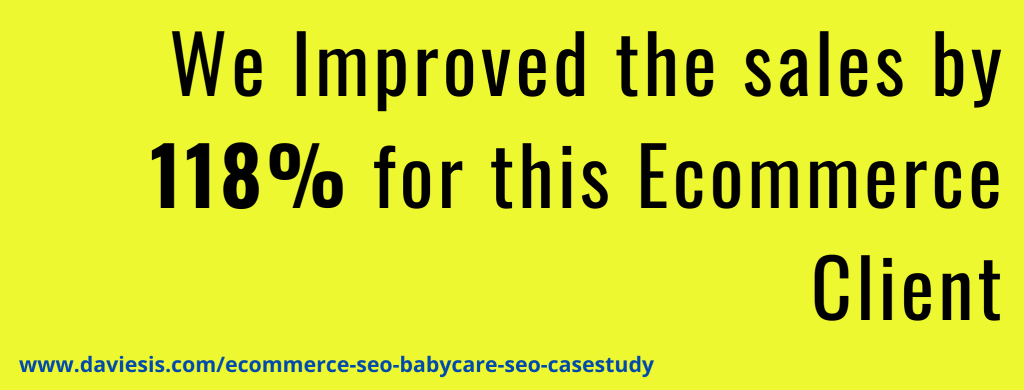DaviesIs guide to Ecommerce SEO…
The number one aim of setting up a website is to sell your products online. But to be able to make as much sales as possible, you need to be more viMeaning of ecommerce SEO sible online.
This means that when people search for products that you sell, a link to your website should appear on the first page of the search engine results to get as many people to visit your site as possible. This is what ecommerce SEO is all about.

Meaning of ecommerce SEO
Ecommerce SEO (search engine optimization) is the process of making online stores more visible in the search engine results pages. This is a sure-fire way of getting more traffic to your website and to make it rank as highly as possible.
There are several ways to get traffic. One, there’s paid search. Two, you will need to optimize your headlines, meta description, navigational structure, product descriptions, internal link structure, and user experience. Additionally, you should also make sure that each product in your inventory has a dedicated page to draw traffic.
How to do Ecommerce SEO right
Your website should appear on the first page of the search engine results pages (SERPs) to ensure that you’ll get your fair share of targeted customers.
- Start with keyword research.
Ecommerce SEO should start with keyword research to drive your campaign. First, you need to make a list of all the pages on your site. Second, search for appropriate keywords for each page.
For ecommerce sites, you will need to optimize both category and product pages, which require different approaches. You should perform this step even if you haven’t launched your site yet. If your site already has lots of pages, optimize the most important pages first. Sort pages by revenue to know which ones you should prioritize.
- Perform on-page SEO.
After doing a keyword search and knowing which pages to optimize first, the next thing you need to do is to perform on-page optimization.
First, you need to optimize meta titles, H1s, and descriptions. You can use a template for all your meta tags to save time and effort creating unique titles. However, use different templates for different types of pages. When writing the meta descriptions, make sure to include your primary keyword or long-tail variations.
- Find and fix technical SEO issues.
Check for duplicate pages on your site. Identical pages don’t need to exist on your site. This is why you need to delete and redirect one to the other page. But if a duplicate page exists for a reason, use a canonical link to prevent search engines from indexing both pages, which could merit a penalty. One way to prevent such a problem is to use a “noindex, follow” tag.
You will also need to make sure that important pages, like category and product pages, are no more than 3 clicks away from your homepage to ensure that they are easily accessible to site visitors.
Another important task you need to do when correcting technical SEO issues is to find keyword cannibalization errors, which is when your site unintentionally targets the same keyword for multiple pages or posts.
- Build links for your site.
While link building is difficult, it is an important part of ecommerce SEO.
The first step you need to take is to look for sites that link to your competitors using Link Intersect. Sift through the results and find replicable sources of links. Once you find them, it will easier to find sites that would be most interested in linking to you, too.
- Use content marketing.
It will be much easier for other sites to link to you if your site has good quality, relevant content. Use blogs, articles, infographics, and the like to boost important pages on your ecommerce site. Content should be link-worthy or niche-relevant to attract links. You can use tools like Content Explorer to find brilliant topics that other site owners would want to link to. Once you’ve added awesome content, add internal links strategically. This means that you need to internally link from a blog or infographic to other pages within your site.
- Bottom line
Ecommerce SEO is a crucial part of your online success. Follow this guide if you want to fare better than your competitors.
If you want to know about what we do as a UK SEO Agency please don’t hesitate to get in contact.